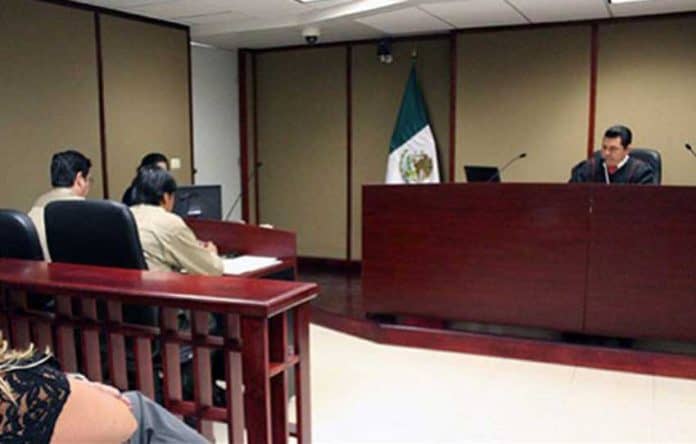Ten years after the New Criminal Justice System (NSJP) was first introduced, the system is still not “world class,” a high-ranking government security official has acknowledged.
Álvaro Vizcaíno Zamora, executive secretary of the National Public Security System (SNSP), said yesterday that one of the system’s main shortcomings is that it has created a “revolving door,” with people detained and released time and time again.
“. . . We still need to achieve better standards in order to be able to offer Mexicans the justice they deserve,” he said.
Speaking at the second International Forensic Sciences Symposium in Mexico City, Vizcaíno added that building the system “is not easy” because it requires the political will of all three levels of government as well as money, which, he explained, is usually not enough.
The new accusatory system, which replaced a Napoleonic system based on written arguments with trials in which evidence was presented orally, was approved constitutionally in 2008 but states were given eight years — until June 2016 — to make the transition.
Under the new system judges have more leeway to release suspects pending trial and increased power to dismiss a case if they believe a suspect’s rights have been violated.
Vizcaíno said the solution to the “revolving door” problem is “pre-trial units,” whose role is to conduct a risk analysis for each person accused of a crime.
The analysis could subsequently be used as the basis for a prosecutor’s argument to a judge regarding what precautionary measures should be adopted as the accused awaits trial, he explained.
“. . . If its preventative prison, then let it be imposed,” Vizcaíno said.
He explained that the pre-trial units were not created in the first years of the implementation process and now more work needs to be done to make them more effective.
“. . . Two years ago, only four states had this piece of the justice system [in place] at intermediate to optimal [levels]. Now there are 32 units but they have to mature and continue to advance,” he said.
Vizcaíno also said those charged with implementing the new system — such as police and officials in security and justice institutions — needed more and better training.
The SNSP chief is far from the first person to point out the shortcomings of the new justice system.
In July last year, one year after the NSJP went into full effect, National Security Commissioner Renato Sales said the system had descended into a “procedural hell” that had led to an increase in crime.
Automatic preventative custody for people found in possession of firearms was one adjustment that Sales suggested.
The Inter-American Development Bank said last year that the NSJP was being held up by deficiencies in the federal Attorney General’s office (PGR) which inhibited the prosecution of crime, while a report published in the Washington Post in December said the system was in turmoil.
Source: Milenio (sp)
